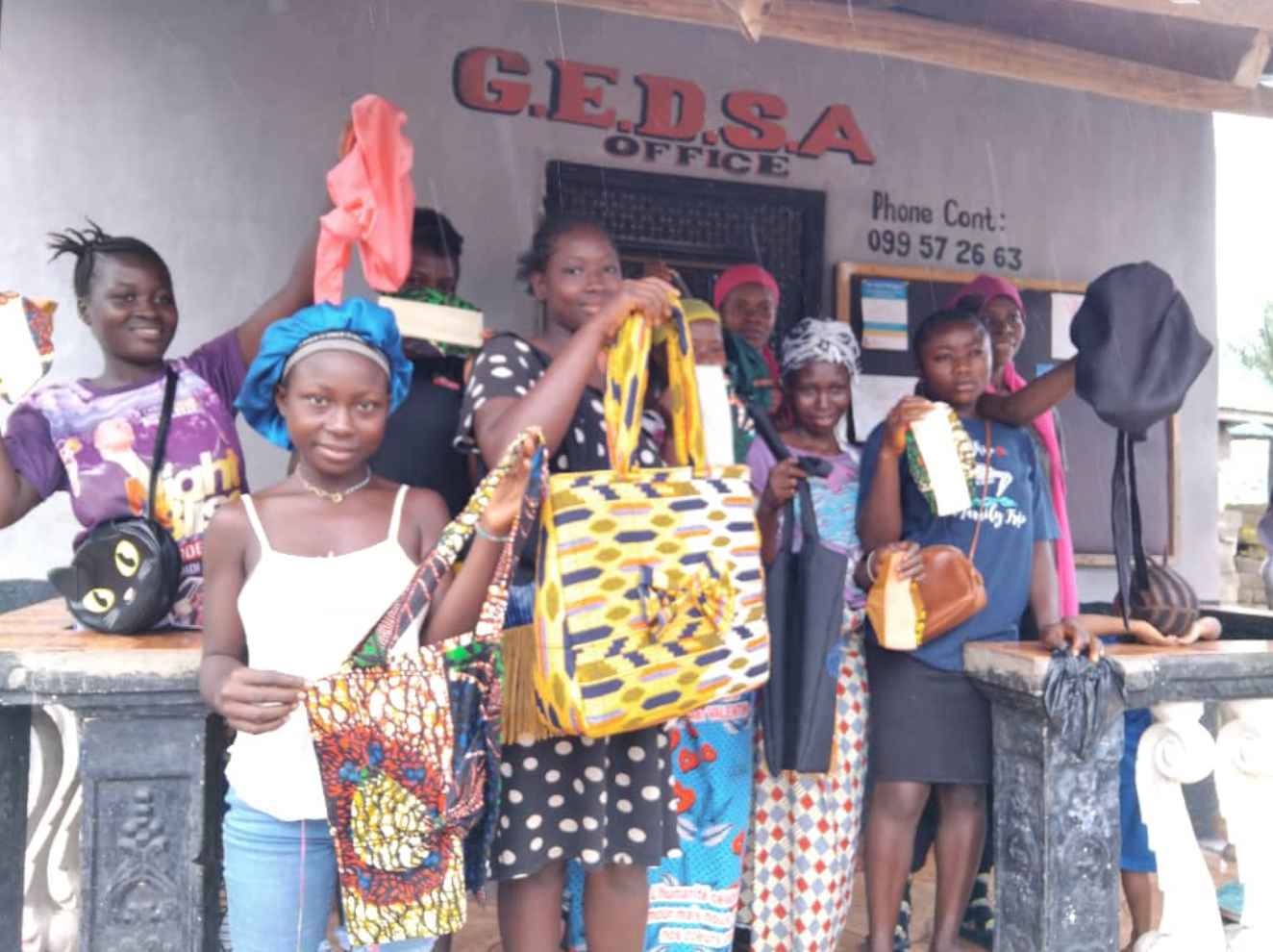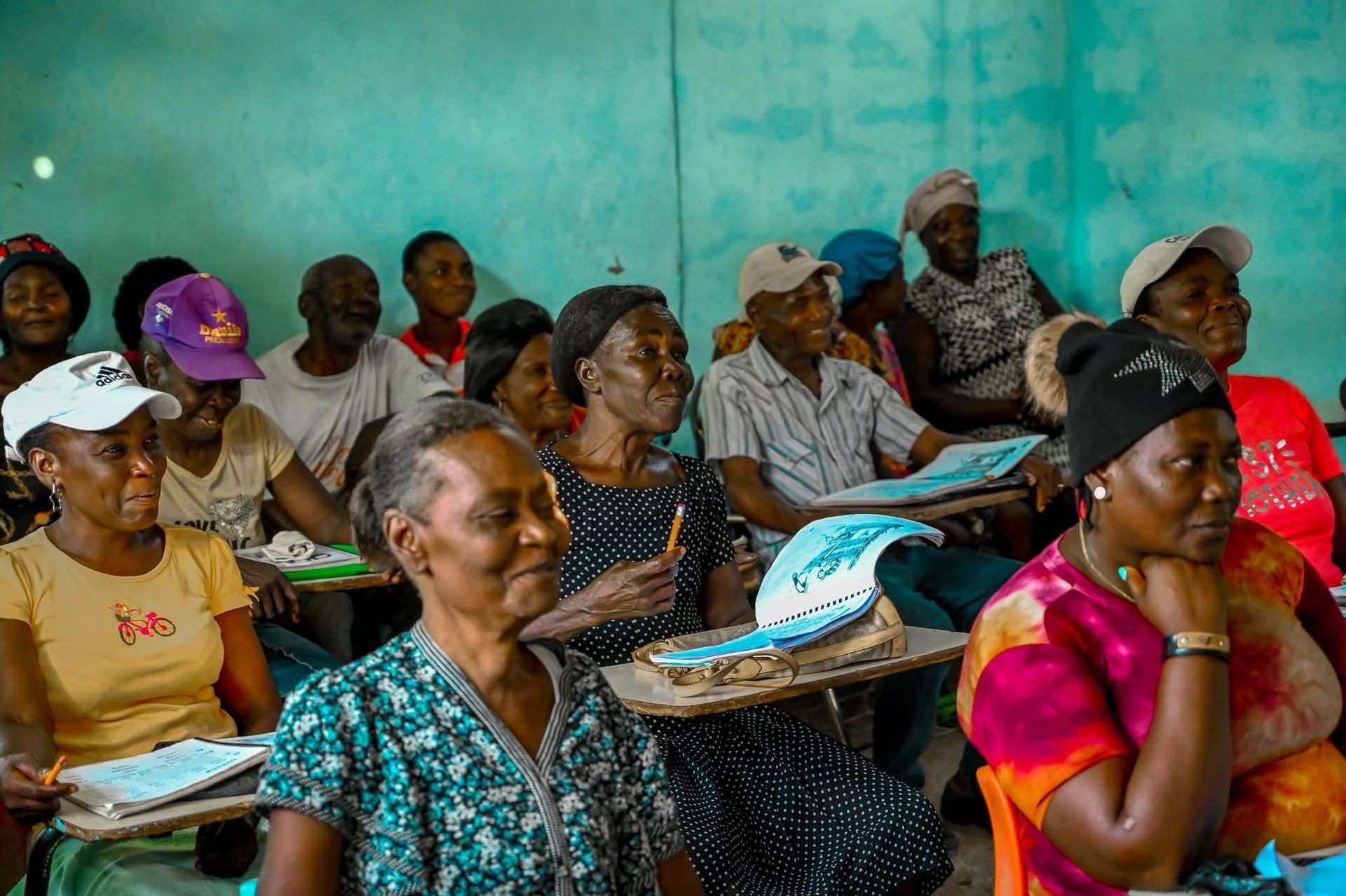Sustainable Development and Teacher Training
Jair Ruiz Flores is a teacher at the 'Normal School OFL', in Mexico.
Many issues arise throughout the world as a result of different
climate conditions. The excessive heat, the lack of w ter, the
overflow of waste materials and the weak local economy of
the inhabitants of Chiautla de Tapia, Puebla, Mexico. Professor
Luis Casarrubias Ibarra urges that, “actions that lead to a
guarantee of care for the environment,” are taken.
The Normal School is located in the south of the state of Puebla,
Mexico. The climate is dry and warm which makes staying inside
the classrooms unpleasant. Teachers and students therefore,
have participated in management projects and secured
an air conditioning system in all classrooms. This system
led to excessive consumption of electricity and a huge and
unsustainable expenditure for the institution. Currently, through
the management of projects with state and federal educational
authorities, resources have been obtained to acquire solar
cells, which replace the consumption of electric energy with
solar energy and have reduced spending by 95%. Likewise, a
rainwater collection system has been generated. Rainfall is now
stored in tanks that supply the needs of the institution, such as
water services to toilets, plant maintenance and cleaning.
The use of paper for different academic and administrative
activities has been minimized and it was decided to digitalise
existing paper records.
Disposable plates, spoons, glasses, straws, bags etc have been
replaced with reusable materials for food consumption in the
school.
All of the initiatives outlined are intended to generate
reflection on the part of the students (trainee teachers) to
care for the environment and to maximise social welfare.
Garbage collection, campaigns and recycling deposits
are being realised as a result of courses in the primary
education degree curriculum. This includes the projects
offered by the National Union of Education Workers (SNTE),
and in particular the initiatives of teachers in training.
As trainee teachers attending Normal School, come from
different areas, consciousness of the need to promote
sustainability is spreading and consequently so too is its
development.
Our Normal School is the first in Mexico that has the solar
cell system and is committed to taking care of the economy
and the environment. We know that much more needs
to be done. Lack of understanding, alongside the supply
of necessary resources, needs to be addressed to ensure
sustainable development impacts meaningfully on all
our lives.
The teachers in training throughout the country are the
army that can take programmes and projects of sustainable
development to the farthest corners. The joy, initiative and
enthusiasm of today’s young teachers working together means
that in the not too distant future they will undoubtedly stand
alongside future generations, coordinating campaigns that will
help to care for and sustain our planet.
From Engage issue 20.
JAIR RUIZ FLORES • November 3, 2021

Summer of 2025, I volunteered in Lusaka, Zambia with Mission Direct to improve educational facilities for school children and staff. These nursery school children live in very basic and small homes in the Kaunda Square Compound. They are currently being educated in overcrowded classrooms with very little space for play and movement. The new school building will allow more children to benefit from an enriching nursery education and ensure that they are ready to learn when they start their formal schooling at the age of six. It will also enable more mothers to work and contribute to their families’ income. The children were very happy to meet us and performed a wonderful song with actions to thank us. Witnessing the challenges of these families living in poverty led me to reflect on the Sustainable Development Goals (SDGs) that finding a route out of poverty (SDG1) often starts with a quality education (SDG4). Educating children to become literate, numerate and confident, responsible young people allows them to obtain secure employment with fair pay and to have the prospect of rewarding careers, leading to economic growth (SDG8). Of course education is about so much more than preparation for future employment. An educated person is better prepared to maintain the health and well-being of their family (SDG3) and ensure that nourishing food is provided everyday (SDG2). We are disappointed and saddened to learn that some of the world’s wealthiest nations are slashing their overseas development budgets. This makes the work of NGOs even more vital as they strive to reduce inequalities (SDGs 5 and 10) to ensure that all children benefit from a quality education.

Addressing SRGBV comes through different methods. One effective approach is to provide the most at risk of becoming victims with required skills and knowledge. The essence of this approach is to keep girls safe, engaged and ensure before they return to school that they have a better understanding of SRGBV. The phenomenon of school-related gender-based violence [SRGBV] undermines the right to education for countless children, particularly girls. In the initial phase of our project, we successfully implemented SRGBV awareness and prevention programmes in 14 schools across Bombali district Northern Region. Phase one involved training school staff, engaging students, and building community awareness to create safer school environments. This phase focused on training girls to make reusable sanitary pads and other soft skills to engage them in daily activities. The project engaged over 50 students between the ages of 12-18 years in skills training to help keep them engaged in learning how to make reusable sanitary pads, bead design and cake making. The overall implementation of the project was a success as all of the girls engaged were able to learn new skills and new knowledge relating to GBV prevention. Below are some of the specific successes; Girls were trained in making reusable sanitary pads, sewing and bead design work, basic cake making skills, learning to identify violence, report it and learn how to prevent and de-escalate violent situations and how to stay positive in life through mentoring and supporting each other. This increased the knowledge of community stakeholders and parents on the impact both in and out of school. 100 participants including parents, education officials and community leaders were engaged. Despite the successes recorded, there were some challenges in the implementation. Challenges The rains were heavy and affected some classes Inflation in the market affected the proposed initial costs and the current cost of items The number of stakeholders and parents engaged were more than the proposed number leading to an increase in the food budget BY ISATA M KAMARA DIRECTOR OF GENDER EQUALITY AND DEVELOPMENT FOR SOCIAL ACTION (GEDSA)

Alfa Limonade, Haiti For all our people who were deprived of childhood education, the objective of this Alfa programme is to provide the opportunity to become literate. In Haiti, especially in rural areas such as ours, literacy rates are dismal. 44% of Haitian men and 56% of Haitian women are illiterate, but these statistics are far worse in villages and the countryside. (UNESCO) Launched 23 years ago, Alfa uses an excellent participatory text book, Goute Sel, for writing, reading, and comprehension. It was developed specifically for use here in Haiti. We also use Ti Koze Sou Istwa Peyi Ayiti, stories and questions from Haitian history, and Lekti Net Ale, reflections on connecting with the world. Through blackboard instruction and Kaye Kalkil, Alfa participants practise exercises in arithmetic. At the second level we launch group discussion through reading Edikasyon Civik. After long consideration, our team of monitors has established that Alfa must develop its own practical introduction to numeracy for adult learners. Our improved numeracy project must adjust to the situation of Alfa participants. Obviously, in their daily lives our participants constantly face numeracy problems. Having no education, they were unaware of their lack of capacity. Today, through Alfa, they are gaining in literacy, and we should also ensure that, despite their often advanced ages, they also become numerate. They must not lose this gift simply because they have been deprived of the basic human right to education. Through our new tool, Alfa’s market women and peasant farmers will grasp the basics of numeracy, so that they are not lost in the economic situations of their adult lives. They will address these problems with awareness, papers and pencils in their hands - just as others do! Chancy Jacques, Alfa Supervisor, and Antolius Pierre, Alfa monitor in Jede, are collaborating on Alfa’s own book, Kalkil San Limit, with the following objectives: To support our monitors with a good tool for introducing numeracy. To reinforce the capacity of every Alfa participant. To enable participants to reflect productively. To enable participants to calculate well and fast. To enable participants to record their written results. Thus Kalkil San Limit will include the following sections: numeracy, problem solving, geometry, and mental calculation. Numeracy is a key part of the core skill base of a literate individual. In our Haiti, this means the ability to understand and use basic maths in real life situations at home, in the market place, or for agricultural transactions. We are preparing to go to print this summer! By Sarah Grey Alfa Limonade, Haiti

